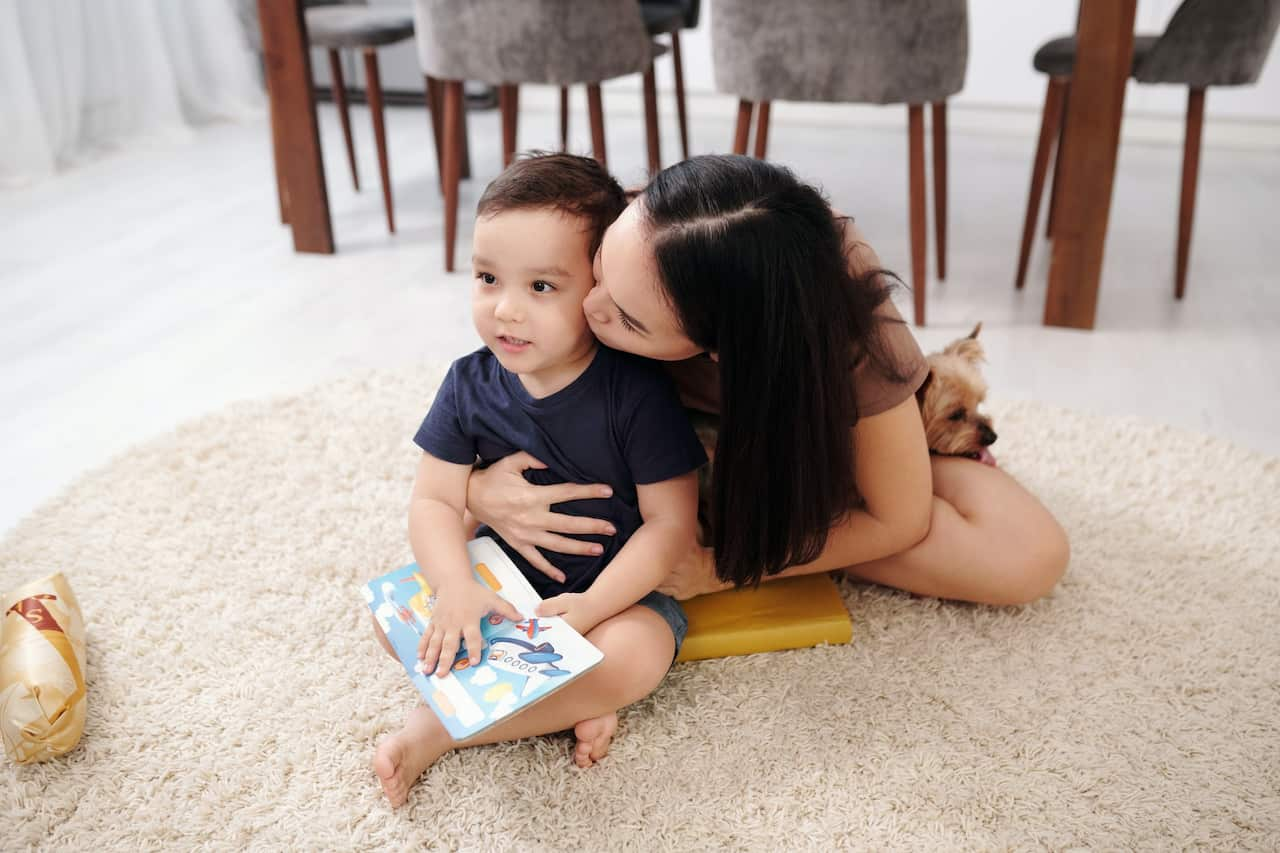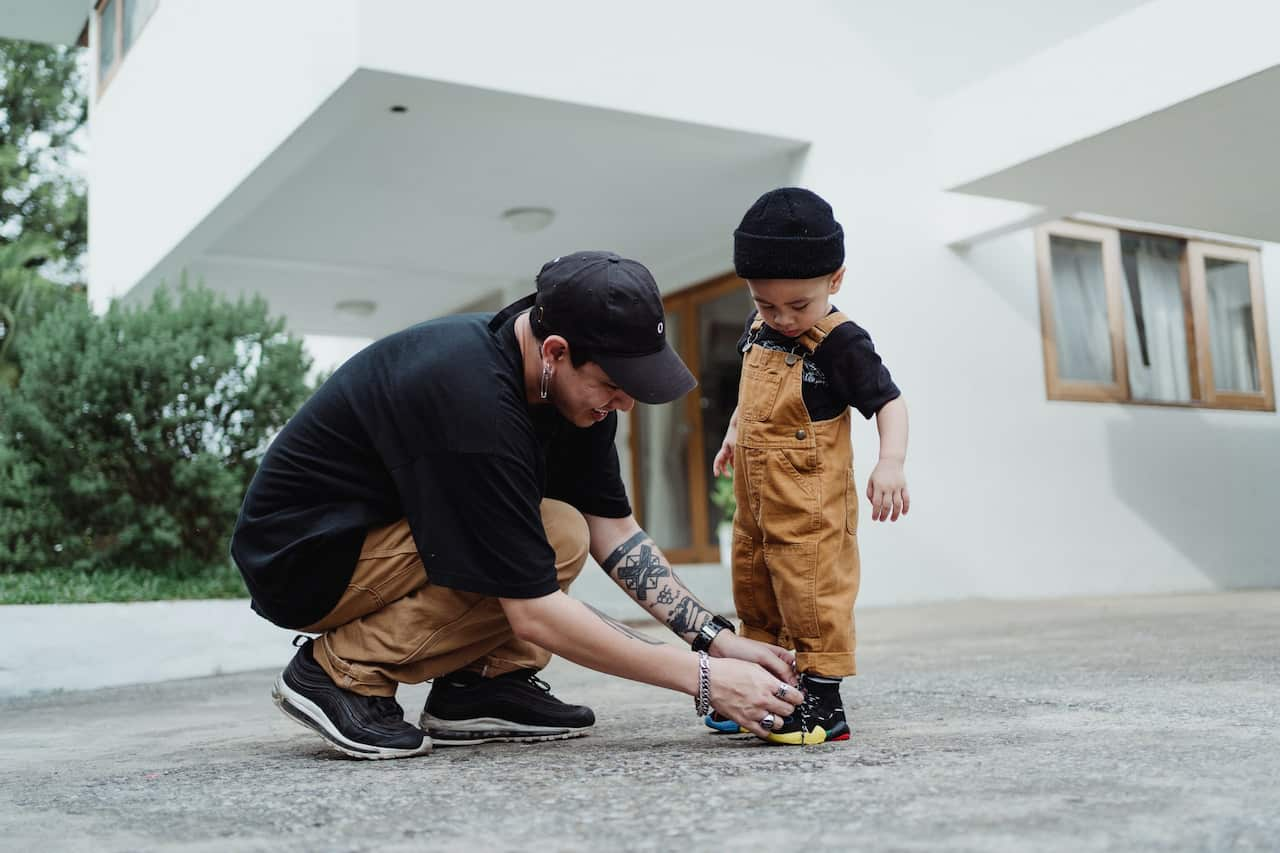Highlights
- Gentle parenting focuses on the relationship between a parent and child.
- The important aspects of this style are empathy, respect and understanding.
- The style requires more effort but promises more rewards in the end.
"Gentle parenting is simply how parenting should be. It shouldn't even be considered as a revolutionary style," Sydney-based psychologist Aimee Santos shares of a parenting style that has gone viral in platforms such as TikTok.
Aimee Santos specialises in parenting and relationship concerns among others.
Parenting should be gentle

While parenting doesn't come with a manual, there are an infinite number of books on how to parent.
Some of the well-known parenting styles around include attachment parenting, tiger parenting and permissive parenting.
Gentle parenting, on the other hand, is a newly-termed approach; however, while evidence-based research on the parenting style is scarce, it has long been established that the the parent-child bond has an important role in a child's development and behaviour. When taken on, the parenting style allows for a more peaceful, relaxed household.
"Parenting should be gentle," Aimee shares, adding, "Why do we lean towards gentleness? Because the child actually responds to gentleness more than harm. This isn't a revolutionary idea."
This non-revolutionary parenting style is built on the foundation of empathy, understanding, respect and boundary-setting.
"When we as adults demonstrate how it is to love our spouse, our parent, or how to maintain harmony in the family, we're actually modelling that behaviour to the child. The child realises this is how he needs to behave."
Expressing an abstract feelings (such as love and sadness) begins with gentle thoughts, with Aimee sharing that gentle thoughts lead to gentle speech and behaviour.
"When a child throws a tantrum or cries, he is actually trying to convey something that you might not understand. Have empathy and encourage him to use his words or to to gesture why he is upset.
"All kids are different. There will be some that are quiet. Some will be rowdy; but if you put personalisations on them such as 'naughty', that's a judgment. Instead of trying to understand why a child is sounding off or having a tantrum, you blame the child for being a certain way. That's not effective.
"If let's say you were negatively personalised as an adult, you wouldn't like that either. Why then is it ok for this to be done to a child?"
The pillars

The way we parent is generally based on how we were parented ourselves.
"Culture, tradition and behaviours are modelled to us by our parents. It is assumed that we have an idea of how to be a parent.
"If a child has a tantrum, we have a tendency to stop them from crying or to tell them to deny their emotions. As Filipino parents, we have a tendency to say 'Tigilan mo na yan!' [Stop that!] or the gentler 'Tahan na' ['Don't cry']."
While denial is a typical parenting response, the pillars of gentle parenting revolve around delving into and dissecting big emotions.
1. Creating a bond through warmth and trust
A common phrase used in gentle parenting is 'connection before correction', meaning offering a child comfort before discipline.
Connections create a bond between parent and child, which in turn, helps the child accept discipline more easily.
2. Putting importance in choice and autonomy
This pillar is about seeing a child as an individual and human being, - worthy of respect, freedom and choice.
A child's choice will be rooted in an underlying emotion or issue. While guiding, keeping a child safe and being the soft place to land, a parent should provide open communication and respect.
3. Relying on natural, gentler consequences instead of punishments
Instead of telling a child to go to his room or taking away his gadgets, find a gentler, more natural approach. This will more likely take more time and more effort on the parents' end.
For example, an alternative to a time-out is a calming corner where the child can be comfortable, can reflect and calm himself through sensory tools or breathing exercises.
4. Creating firm boundaries
Just because you are being a gentle parent doesn't mean you don't set boundaries; rather, this style calls for firm ones.
Boundary-setting actually teaches new skills. For example, when overwhelmed with a pile of toys on the floor, guide a child by taking turns with them picking up five toys.
When you can't help but be angry

Ideally, gentle parenting is the way to go; but it does take a lot of work and Aimee admits that it's not possible 100% of the time.
"Anger is a natural emotion. Parents get angry. Sometimes, you can get frustrated; but be mindful to use gentle words. If you can't help but be angry, take a pause, count, step away and take a breath. That pause will allow you to think rationally. In as much as you teach [emotional regulation] to your child, do it as well."
When you've calmed down, Aimee suggests apologising for raising your voice and potentially hurting your child when you did.
"Remember - there is an imbalance of power between parent and child. They're dependent on us - especially the young ones. Be an observing parent of how you parent. Don't abuse the power you have as a parent.
"Most parents want their children to be successful - think about that.
"Help is always available, Some parents are too lazy, too busy. Sometimes there are just too much things going on; but as a parent, you have to be aware of your parenting. Set aside time for reflection on how you're doing. It's for your and your child's benefit."
